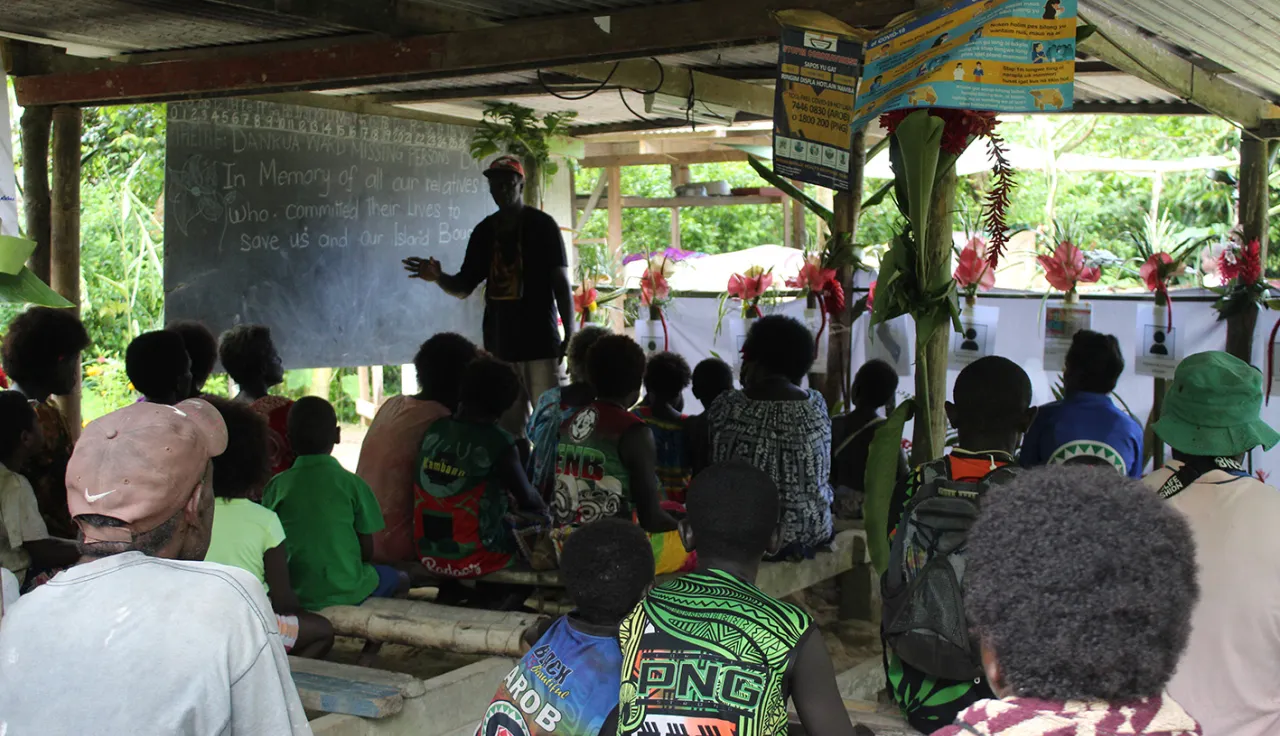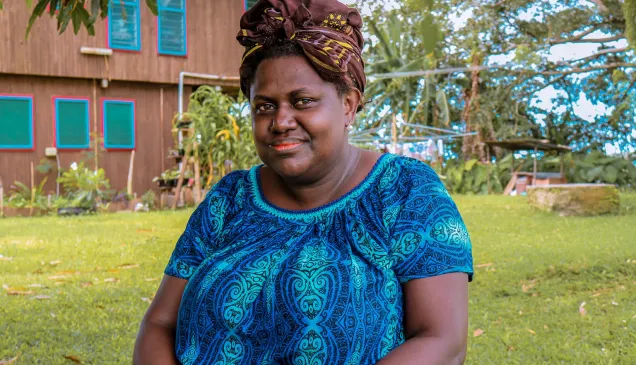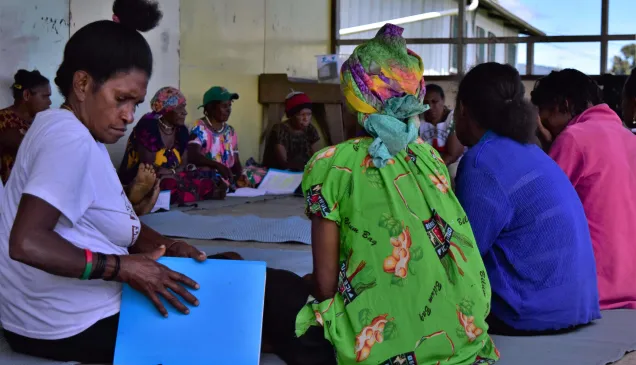Bougainville: Families commemorating their missing relatives and the right to know about their fate

"The last time I saw my brother was in 1990, when he went to drop off my sister and her son at Makaki point in Kieta town. Before leaving, he asked for chicken for dinner and we ate all together that night. The next morning, he left without saying goodbye. Since then, we have not seen or heard from him. My heart breaks every time I recall that moment, not knowing that would be the last time I would see him."
These are the painful sentiments of Isabella Buruau, as she reflects on the last memory of her brother, Pascol Buruau, who was 23 years old when he went missing during the Bougainville Crisis in September 1990, two years after the crisis onset. According to his family, Pascol used to help to bring food for people taking shelter at the care centre during the ceasefire.

Isabella Buruau. CC BY-NC-ND/ICRC/Caleb Burain
"Pascol was born after me in Bougainville. He was always smiling and a very obedient child to our parents. Every time he returned home for holidays from university in Port Moresby, he would bring toys for his nephews to make them happy. The family is now left with these memories and a slight hope that may be one day Pascol might come back to them alive". Cecilia is sharing the same pain with her sister Isabelle: "Ever since he disappeared, we suffer from not knowing what happened to my brother and if he will ever return home", Cecilia added.
Since 1988, hundreds of families in Bougainville are still yearning to know the fate of their missing loved ones, said Dominik Urban, Head of Mission in Papua New Guinea. Every year, the International Committee of the Red Cross (ICRC) supports and accompanies families in Bougainville to organize traditional ceremonies to remember their loved ones as a coping mechanism to the deal with uncertainty. On 1st November 2020, families of those who went missing in Topinang, Pavaire and Amiong communities in Kieta, Central Bougainville gathered in to commemorate their relatives who are still unaccounted for today, more than twenty years after the end of the crisis.
On this occasion, families brought a tree that they believe the missing family member liked, accompanied with a portray photo, and had it blessed by the community priest before taking it home to plant in memory of their loved ones. The ceremony is a platform for families of the missing persons to come out and celebrate the life of their loved ones and look at a new way forward without them
It happened many years ago, but the memories are still fresh. The life of the missing person has a meaning. These are people that have been with us before and remain with us in spirit. We should never forget them.
- Joycelyn Mimira, a family member of another missing person from the Amiong community.
Families of missing persons undergo the same traumatic experience as all others affected by the conflict and face additional psychological, social and economic challenges associated with the disappearance of the family member. "The tragedy of the missing people remains a humanitarian concern and it is important that authorities ensure that their fate is clarified and that families receive their long-overdue answers. The ICRC reiterates its commitment to support the national and Bougainville authorities in this effort, said Dominik Urban.
The ICRC has been working to protect and assist people affected by violence and tribal fighting in Papua New Guinea since 2012.



